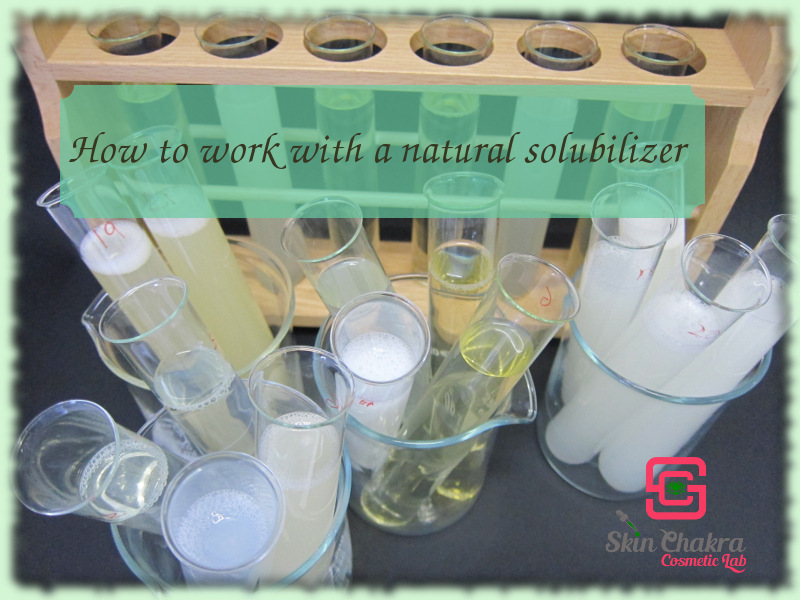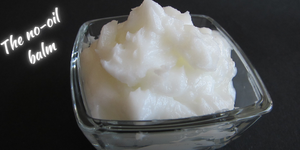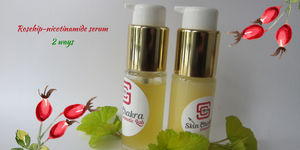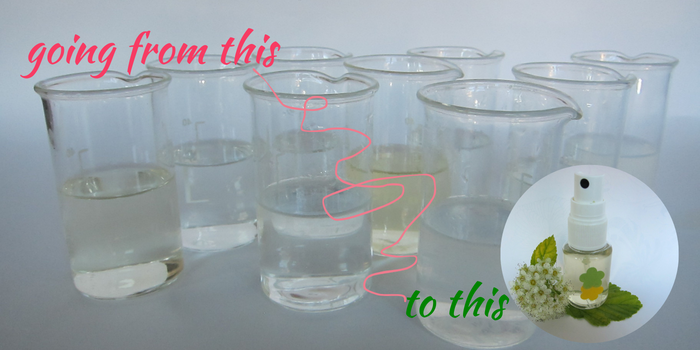
If there is one single "No-go", "synthetic" ingredient that I am missing as a "natural cosmetics formulator" that is the polysorbate-20. I can not relate when my conventional formulator colleagues still sing the praise of the parabens and are sad and frustrated about all the increasing bans and the consumer dislike for them but I honestly miss the polysorbate-20 and its performance as an outstanding solubilizer.
If you wonder why on earth I am missing this ingredient while you can still find it on the label of thousands of products and as a raw material sold by tens of online retailers who praise it as a "sugar derived" ingredient read this previous post
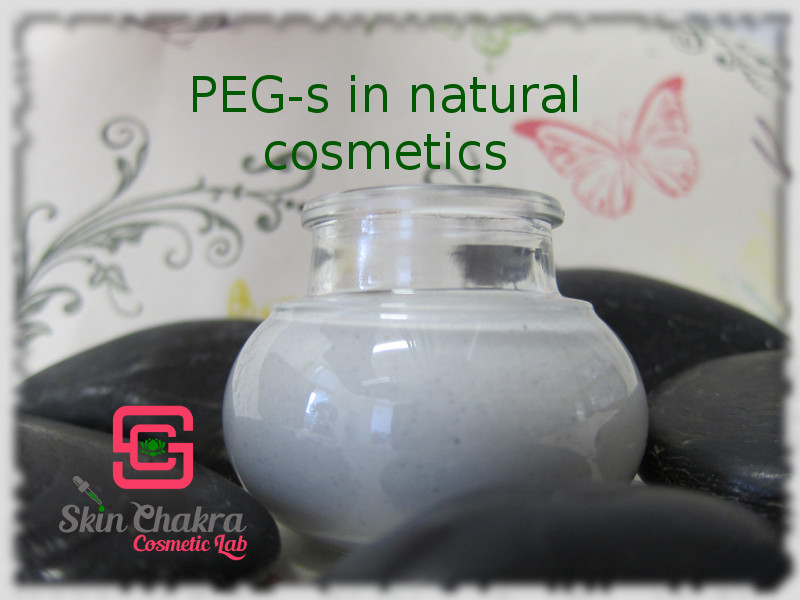
What are solubilizers at all?
Solubilizers are in clear words match makers between oil and water. In definition and in chemistry they are similar to emulsifiers and both belong to the bigger group of surfactants but the solubilizers are usually water soluble and have a higher HLB. You might find some common ingredients in commercial solubilizer and emulsifier blends but you can not swap one with the other.
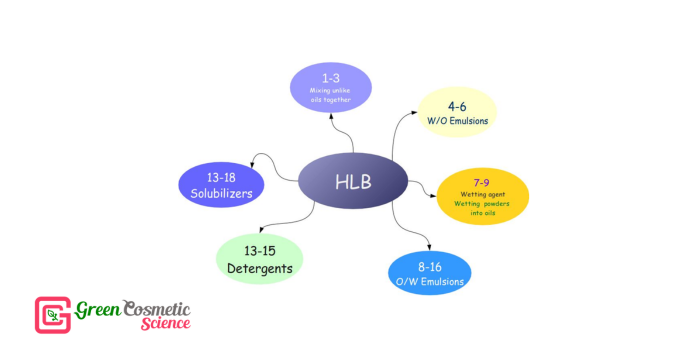
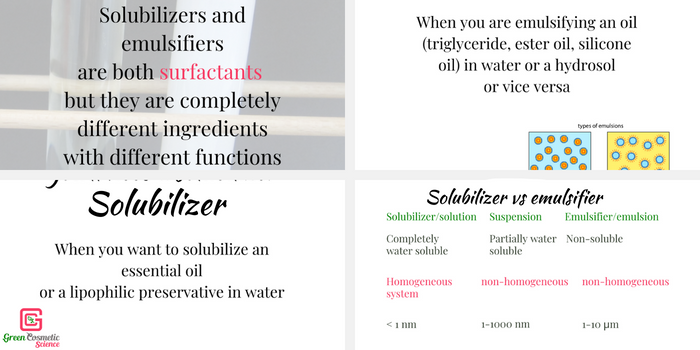
What we expect from a solubilizer?
1- work at a reasonably low concentration
2- has no impact on the color, scent and viscosity of the product
3- has a nice skin feel (no tackiness)
4- does not foam like a dog shampoo
5- ideally work for lots of essential oils, lipophilic vitamins and preservatives
I have to confess that I am still searching for a miraculous solubilizer that can check all of the above boxes.
For one: all solubilizers are surfactants and foaming is in their nature .
Then despite the poor old polysorbate-20 which was an all-rounder solubilizer when it comes to "naturally derived" solubilizers they are rather selective and work differently for different ingredients and work even differently with individual essential oils which all belong to the same group of ingredients.
The third annoying issue is that since you usually need a high ratio of the solubilizer:essential oil the skin feel is usually tacky and unpleasant.
This has brought us to the point that we have completely stopped using any solubilizer in our formulations and we rely on the scent of the hydrosols when we prepare toners and body splashes and completely avoid the essential oils in order to not use the solubilizer.
But this is not the end of the story
Although I am by no means as patient or as ingenious as Thomas Edison who famously has said: I didn't fail, I found 10,000 ways it doesn't work
We have not failed yet and we are still testing all newcomers on the market to find at least an acceptable (if not perfect) solubilizer for you.
Stay tuned for more updates and read this previous post about working with natural solubilizers
